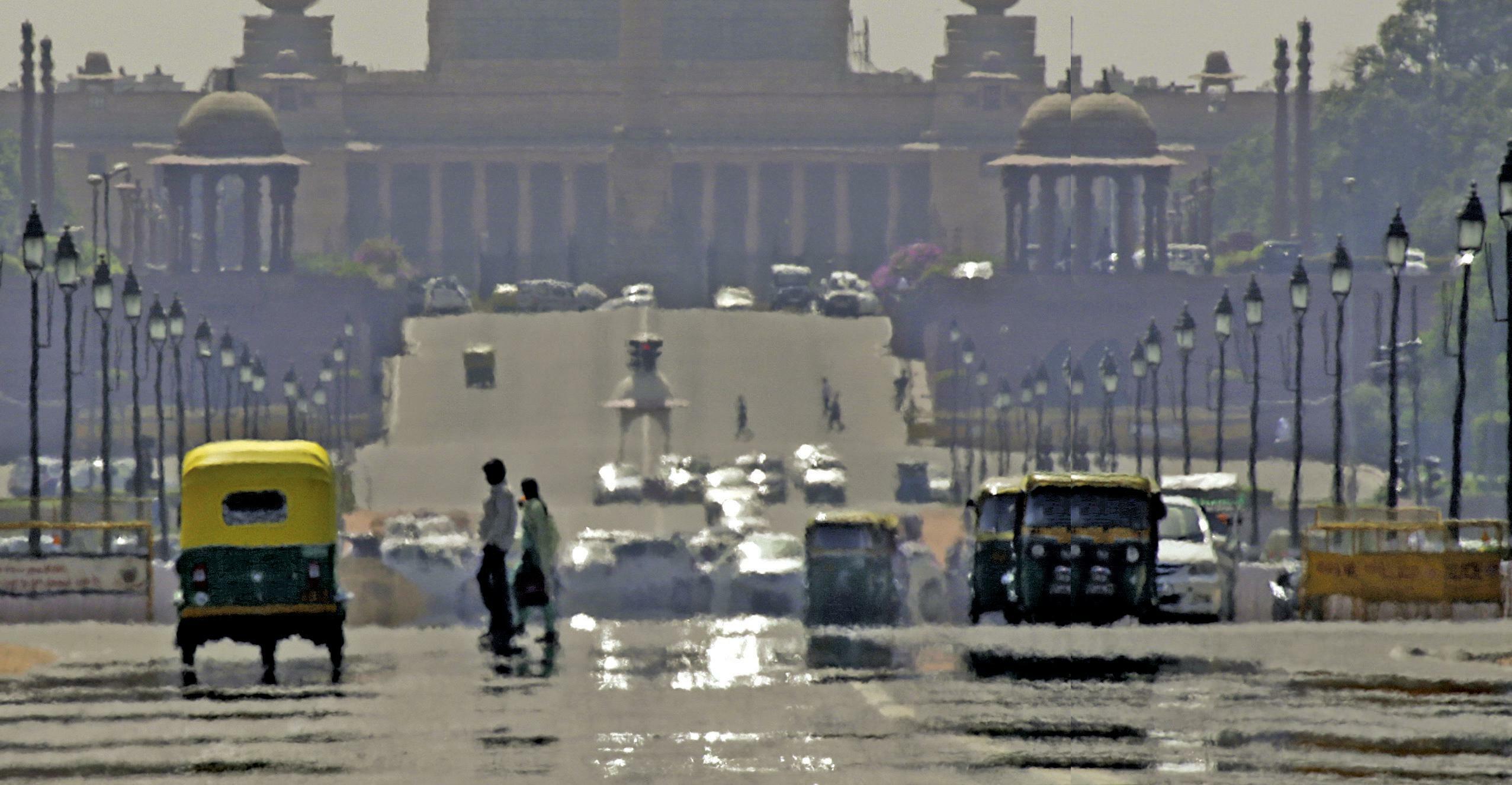Try GOLD - Free
URBAN DISCOMFORT
Down To Earth
|May 01, 2024
Poorly planned, heat-trapping infrastructure, along with dwindling natural spaces, turn up the temperatures in major Indian cities
-

IN A warming world, urbanisation has a profound impact on heat. As a city's population grows, infrastructure needs to be developed to cater to its requirements.
Cities contribute more than two-thirds of global carbon dioxide emissions, according the UN Environment Programme. However, their environmental impact goes beyond emissions. As a city grows, the way buildings, roads and railways are laid out; the density, height and size of buildings, and the materials used; the amount of green spaces and water bodies; and level of human activities such as use of vehicles and airconditioners together determine how much heat is retained in the immediate area.
When released, this heat raises the temperatures of the nearby atmosphere. As the grey infrastructure gets denser and more concentrated, it erodes the natural spaces that act as heat sinks and keep the environment cool (see 'Influencing factors'). If left unchecked, such development could create an urban heat island effect, with cities recording high temperatures that can adversely impact the health of people, and also potentially be fatal.
To analyse the status of urban heat islands in the country and establish the ongoing heat burden that is a result of their development, Delhi-based think tank Centre for Science and Environment (CSE) conducted a study in nine cities-Delhi, Jaipur, Kolkata, Nagpur, Pune, Ahmedabad, Hyderabad, Chennai and Bhubaneswar.
These cities, which are of different sizes and are located in different climatic zones, show that the problem of heat is not restricted to a specific kind of climate or geography.
This story is from the May 01, 2024 edition of Down To Earth.
Subscribe to Magzter GOLD to access thousands of curated premium stories, and 10,000+ magazines and newspapers.
Already a subscriber? Sign In
MORE STORIES FROM Down To Earth

Down To Earth
JINALI MODY - ENTREPRENEUR
In September 2025, UN Environment Programme announced Mumbai-based Jinali Mody, founder of material-science startup Banofi Leather, as a Young Champion of the Earth.
2 mins
January 01, 2026

Down To Earth
IT'S AN ENDLESS BATTLE
A decade spent tackling waste still feels vanishingly small
2 mins
January 01, 2026

Down To Earth
'NUMB, AND UNABLE TO ACT
As disasters grow more frequent, I find myself wondering how long I can continue living here, waiting for the next storm
2 mins
January 01, 2026

Down To Earth
SAJANA SAJEEVAN - CRICKETER
In April 2024, Sajana Sajeevan got her maiden call up to the national women's cricket team on the back of a 12-year domestic career that began in the paddy fields of Wayanad, Kerala.
4 mins
January 01, 2026

Down To Earth
NILA MADHAB PANDA - FILMMAKER
Few storytellers bring dramatic despair of ecological loss to the big screen like Nila Madhab Panda. The national-award winning filmmaker often makes nature his central character, be it in his 2017 film Kadvi Hawa or in the 2023 web series The Jengaburu Curse.
4 mins
January 01, 2026

Down To Earth
CHETAN SINGH SOLANKI: SCIENTIST | SOCIAL ENTREPRENEUR
For the past five years, Chetan Singh Solanki has been on a singular journey.
2 mins
January 01, 2026

Down To Earth
ʻLIVING SLOWLY, RELUCTANTLY
The pleasures and burdens of attempting a sustainable life in a fast-moving world
2 mins
January 01, 2026

Down To Earth
KIRAN RAO
Filmmaker and producer Kiran Rao has mastered the art of mainstreaming social commentary, as seen in her early films like Dhobi Ghat and more recently in Laapataa Ladies and Humans in the Loop.
4 mins
January 01, 2026

Down To Earth
I SEE THE RISE OF DEFENDERS
When a species disappears from a land, the loss extends far beyond the species itself.
2 mins
January 01, 2026

Down To Earth
MANISH MEHROTRA - CHEF | RESTAURATEUR
Manish Mehrotra is globally recognised for his innovative approach to preserving India's culinary heritage.
4 mins
January 01, 2026
Listen
Translate
Change font size

